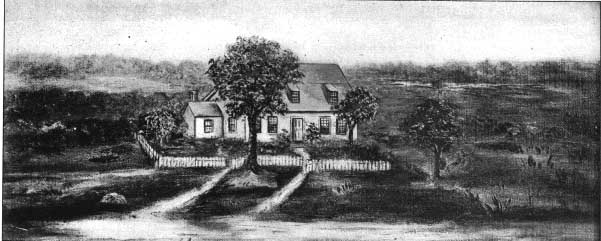Major-General William Shepard

Major-General William Shepard was born December 1, 1737, and died November, 1817. The eighty years of his life included the times of all the wars with the French and Indians, beginning with King George's war and ending with the capture of Quebec and the conquest of Canada. These eighty years also included the time of the War for Independence and the War of 1812. In all these wars, with the exception of the latter, Gen. Shepard was an active participant, and could his life in detail be written, as Irving wrote the life of Washington, it would be an epitome of the history of the wars. His limited common school education ended at the age of seventeen, when he entered the army at the beginning of the French and Indian war. Under Generals Abercrombie and AMherst he was promoted from the ranks, through successive grades, and remained with the army until the conquest of Canada established Anglo-Saxon supremecy in North America. He then returned to Westfield, married, hung up his sword, and put his hand to the plow, hoping to enjoy the peace of a farmer's life. The thrill of the slaughter at Lexington and Concord was felt by all. William Shepard hastened at once to the camp at Roxbury. He was made colonel and was the companion of Washington, in most, if not in all his battles. By him he was appointed to protect the retreat from Long Island, during which his neck was pierced by a ball. He was borne from the field. While the surgeons were probing for the ball his consciousness returned. "Bring me a canteen," he said. Finding that he could drink, and that the organs of his throat were not severed, he said to the surgeon: "It is all right, doctor, stick on a plaster and tie on my cravat for I am out again." In spite of the remonstrance of the surgeon, and to the amazement of the attendants, out he went inot the battle. This was but one of the twenty-two battles that tested his valor and proved that the commission of general was justly and wisely given him.

Left: "He fought the battles of our country, aided in the councils of our nation, and exemplified the character of the Christian. The righteous shall be in everlasting remembrance." — From General Shepard's Tomb.
When the war ended, and the impressive words of Washington had been spoken to the officers, who, through so many years, had been his companions in toil, privation, and "on the perilous edge of battle," General Shepard again returned to his little estate to maintain himself and those dependent upon him by his toil in the fields. He did more. His simple style of living, his exemplary conduct, his public spirit, his Christian endeavor, and his neighborly kindness furnished a model for younger men and kindled their aspirations for a noble life. Though his opportunities for intellectual culture had been restricted in youth, and though the routine of camp life had allowed little opportunity for adding to his general knowledge, such were his common sense, his bravery, his high character for uprightness and intelligence, that the people were ready to trust hum to perform the highest and mose delicate services for the public good. He was chosen state representative, senator, and councilor. He was three times elected representative to Congress. The governor of Massachusetts appointed him to treat with the Six Nations. He served in many town offices, and was deacon of the church for twenty-four years. He was a large, well formed man, six feet in hight, compactly built, not corpulent, and weighing something more than two hundred pounds. His personal appearance was impressive. On training days, when with others, he came out to observe the evolutions of the military companies during the closing years of his life, Mr. bates, then a boy, says of him: "When I recall his large, imposing figure, bedecked with his trusty sword and cromson sash, the modest insignia of his rank, accompanied by Adjutant Dewey, with the bright point of his spontoon glistening in the sun, and heard the whispers, "There's the general, I remember the awe, notwithstanding his genial face, with which he inspired me."
After the reviews and evolutions were finished the soldiers were discharged. "Then came the greetings and shaking hands with the general."
Speaking of his character, Mr. Bates adds: "The man who, for more than thirty years was in the service of his country, in places of high emolument, the man who was esteemed by Washington and was his companion in all the battles of the Revolution, who, being detached for that purpose, fought with Gates at the battle of Saratoga and contributed to the surrender of Burgoyne; the man who, notwithstanding his simple and frugal habits of living, in his small brown house, his constant and energetic labor, in the favorite business of his life, went to his grave a poor man! What a record is that to leave of him! No taint of meanness or dishonesty ever attached itself to him. He was distinguished for his good character and his unbending integrity."